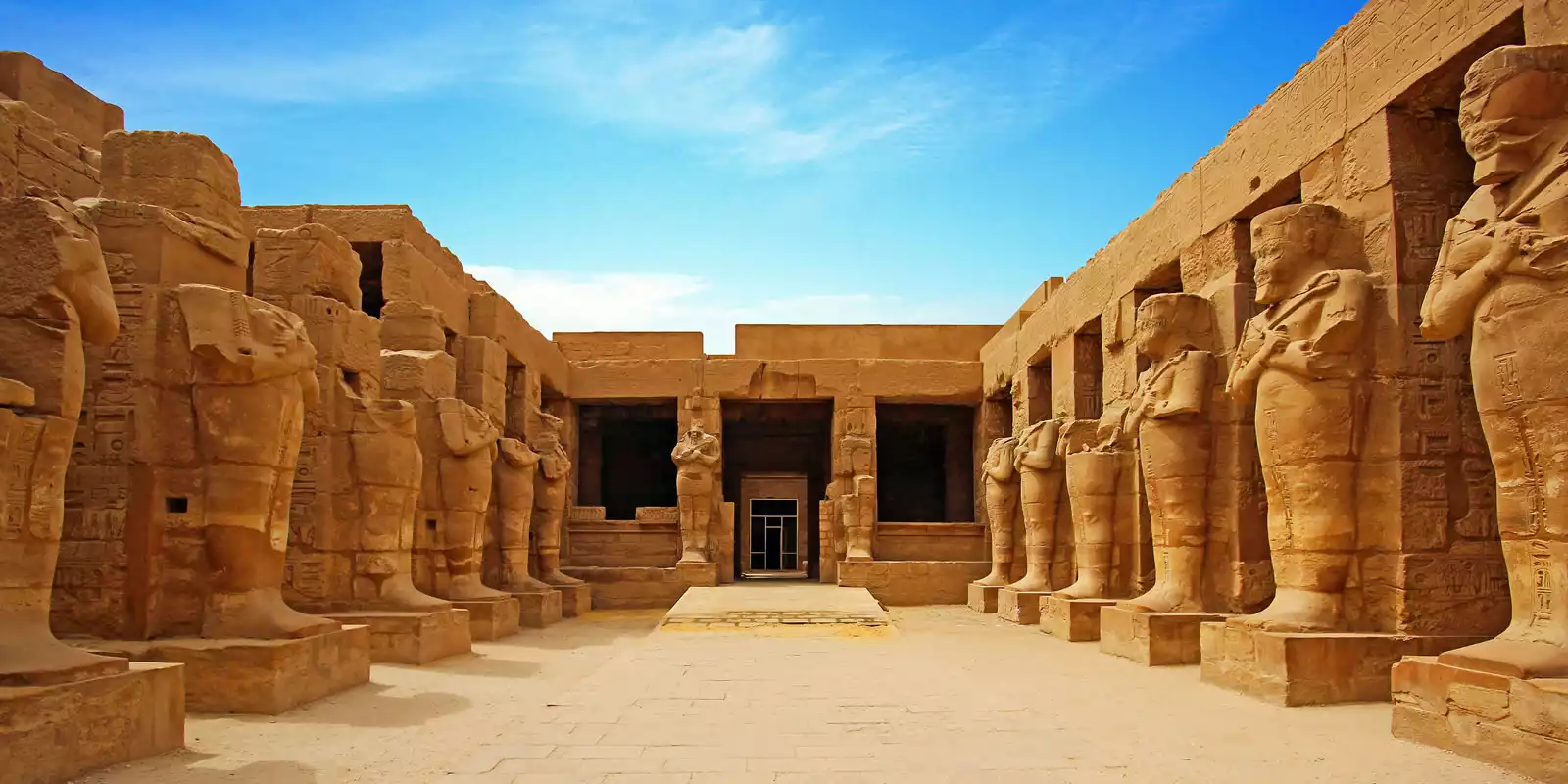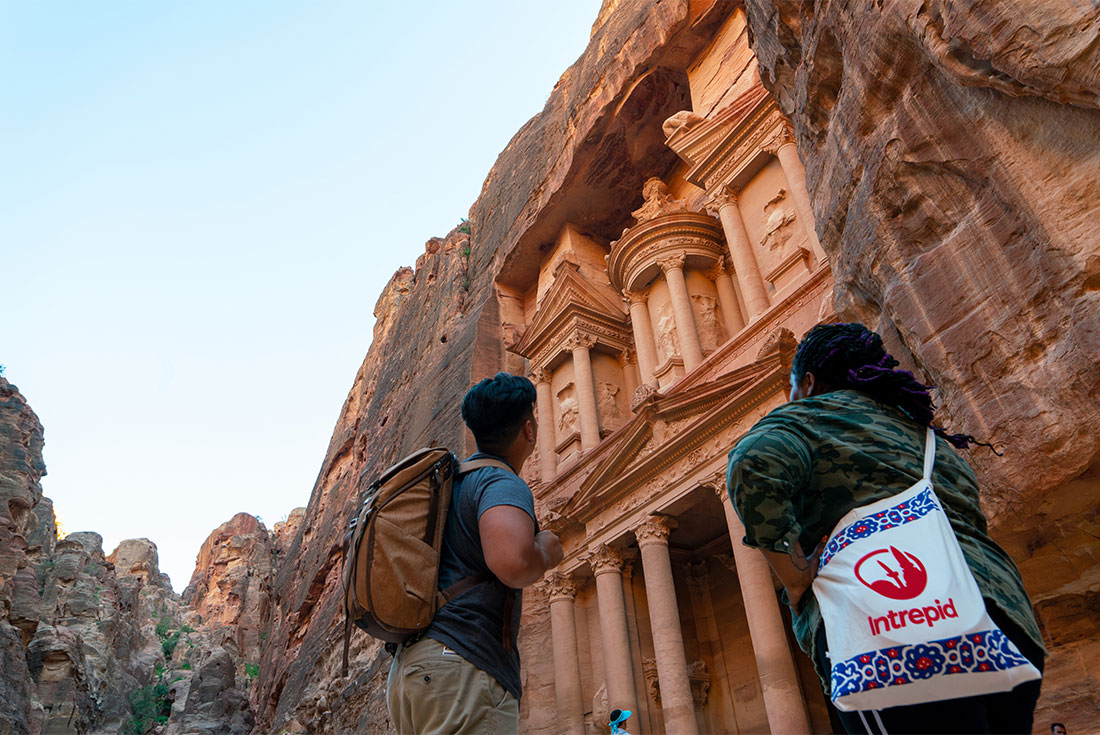Pharaohs and Bedouins: Experiencing Egypt and Jordan Tours as a South African

Introduction
Overview of Egypt and Jordan Tours
Exploring the enchanting landscapes and rich histories of Egypt and Jordan offers a captivating journey through time. Egypt, known for its awe-inspiring pyramids and ancient relics, beckons adventurers with its vibrant culture and timeless monuments. Meanwhile, Jordan showcases its treasures, such as the stunning rock-cut city of Petra and the breathtaking Wadi Rum desert.
Tour options for these destinations are abundant, typically including:
- Cultural Tours: Highlighting ancient history and modern interactions.
- Adventure Packages: Focusing on activities like desert hiking or cruises on the Nile.
- Luxury Experiences: Providing upscale accommodations and exclusive guided trips.
These tours often combine the best of both countries, ensuring travellers can seamlessly transition from Egypt’s iconic sites to Jordan’s awe-inspiring landscapes.
Significance for South African Travellers
For South African travellers, Egypt and Jordan present unique experiences that exceed typical holiday getaways. The landmarks represent millennia of human history, allowing for a deeper connection to world heritage.
Key reasons why these tours are significant include:
- Historical Education: Gain insights into ancient civilisations.
- Cultural Exchange: Experience hospitality from diverse communities.
- Adventure Opportunities: Engage in activities that inspire exploration, such as hot air ballooning over Luxor or trekking the Jordan Trail.
The blend of rich history, stunning scenery, and vibrant cultures makes tours in Egypt and Jordan particularly appealing, creating unforgettable memories for travellers.

Historical Background
History of Pharaohs in Egypt
The history of the Pharaohs in Egypt is one of the most fascinating narratives in the annals of human civilisation. Spanning over 3,000 years, this era is marked by incredible achievements in architecture, art, and governance. The Pharaohs were not just rulers; they were considered divine beings, intermediaries between the gods and the people. Their legacies live on through monumental structures such as:
- The Great Pyramids of Giza: Built as grand tombs for the Pharaohs, they showcase incredible engineering skills.
- The Sphinx: A symbol of strength and wisdom, guarding the secrets of the sand-swept past.
The dynastic cycles, from the Old Kingdom to the New Kingdom, saw influential figures like Ramses II and Tutankhamun leave indelible marks on history, which continue to be studied today.
Cultural Influence of Bedouins in Jordan
In contrast, the Bedouins of Jordan embody a rich, nomadic tradition that has shaped the cultural landscape of the region. Their deep-rooted customs revolve around hospitality, family connections, and survival in a harsh desert environment. Key elements of Bedouin culture include:
- Traditional Cuisine: Dishes such as mansaf, a lamb dish served with rice and yoghurt, represent their culinary heritage.
- Arts and Crafts: Handwoven textiles and intricately designed jewellery reflect their craftsmanship.
The warm hospitality of Bedouins can be experienced through their welcoming tents, where guests are offered traditional Arabic coffee and a taste of their rich storytelling culture. This interaction offers glimpses into a way of life that has endured over centuries, enriching the travel experience in Jordan.
Planning Your Trip
Choosing the Right Tour Operator
Selecting the ideal tour operator can significantly enhance the Egypt and Jordan experience, ensuring a well-organised trip filled with enriching adventures. It’s essential to research and find operators who provide tailored experiences suited to your preferences. When considering options, keep the following factors in mind:
- Reputation: Look for operators with positive reviews and testimonials. Platforms like TripAdvisor can provide valuable insights.
- Itinerary: Examine the offered itineraries for comprehensive coverage of must-see sites in both Egypt and Jordan.
- Guides: Knowledgeable guides can offer deeper insights and anecdotes about local cultures and histories.
Many South African travellers have shared enjoyable experiences with small-group tours, which often foster a better connection between group members and local communities.
Visa Requirements and Travel Essentials
Understanding visa requirements is crucial when planning a trip to Egypt and Jordan. South African passport holders typically need visas, which can often be arranged in advance or acquired on arrival. Main requirements include:
- Egypt Visa: Available upon arrival or online through the e-Visa system.
- Jordan Visa: Can be obtained on arrival, especially for those travelling to Petra and Wadi Rum.
In addition to visas, ensure you have travel essentials sorted, such as:
- Travel Insurance: Protects against unforeseen events.
- Currency: Familiarise yourself with the Egyptian pound and Jordanian dinar for smooth transactions.
These preparations will help ensure a seamless and memorable journey through the historical wonders of Egypt and the cultural depths of Jordan.
Exploring Egypt
Must-Visit Sites in Cairo
Cairo, the vibrant capital of Egypt, is a treasure trove of history and culture, boasting incredible sites that enchant visitors. As you step into the city, you’ll find a range of must-visit locations that encapsulate Egypt's storied past. Highlights include:
- The Great Pyramids of Giza: No visit to Cairo would be complete without standing in awe before these iconic structures, marvelling at their scale and the mystery surrounding their construction.
- The Egyptian Museum: Home to thousands of artefacts, including treasures from Tutankhamun’s tomb, this museum offers a captivating insight into ancient Egyptian civilisation.
- Islamic Cairo: Wander through this historic part of the city, where beautiful mosques, like Al-Azhar and Ibn Tulun, showcase stunning Islamic architecture.
These locations not only highlight Egypt's rich heritage but also provide a deeper understanding of its cultural significance.
Cruising the Nile River
A visit to Egypt is not complete without experiencing a cruise on the Nile River, the life-giving artery of the country. This relaxing journey allows travellers to soak in breathtaking scenery and explore ancient sites along the riverbanks. Some key experiences include:
- Luxor Temple: This temple comes to life at night, beautifully illuminated against the night sky.
- Temple of Karnak: A superb complexity of temples that demonstrates the grandeur of ancient Egyptian architecture.
Many cruise itineraries offer stops at captivating locations, enabling adventurers to delve into the fascinating history and stunning landscapes synonymous with the Nile, making for an unforgettable exploration of this remarkable country.

Discovering Jordan
Exploring Petra
A trip to Jordan is incomplete without a visit to Petra, one of the New Seven Wonders of the World. This ancient city, carved into rose-red cliffs, captivates the imagination of all who visit. Walking through the narrow Siq, a winding gorge that leads to the Treasury, visitors often find themselves in awe as the stunning facade emerges from the shadows. Notable spots within Petra include:
- The Treasury (Al-Khazneh): Iconic for its elaborate facade, it was originally built as a royal tomb and is one of the most photographed locations in the region.
- The Monastery (Ad Deir): A rewarding hike leads to this magnificent structure, which resembles the Treasury but is even larger and less crowded, offering a serene atmosphere.
The Rose City
Petra is often referred to as the "Rose City" due to its distinctively coloured sandstone cliffs. This moniker is fitting, as the city transforms dramatically throughout the day with the shifting sunlight. Early morning visits are particularly breathtaking, with fewer tourists and softer light illuminating the intricate carvings.
Wadi Rum Desert Experience
Just a short journey from Petra lies the majestic Wadi Rum, often referred to as the "Valley of the Moon." This stunning desert landscape, characterised by majestic sandstone mountains and vast open skies, offers a unique adventure. Visitors can enjoy activities such as:
- Jeep Tours: Explore the dramatic terrain and marvel at natural wonders like the rock bridge of Burdah.
- Hot Air Balloon Rides: Experience the serenity of the desert at sunrise, providing stunning panoramic views.
The combination of Petra’s historical significance and the natural beauty of Wadi Rum ensures Jordan remains a must-visit destination, where every turn presents new marvels waiting to be discovered.
Experiencing Local Cuisine
Egyptian Culinary Delights
Sampling local cuisine is an integral part of experiencing Egypt, with its rich tapestry of flavours and dishes that tell the story of its cultural heritage. Egyptian cuisine significantly features a variety of ingredients and cooking techniques influenced by its diverse history. Must-try dishes include:
- Koshari: A hearty mix of rice, lentils, chickpeas, and pasta topped with a tangy tomato sauce and crispy onions, this popular street food reflects the Egyptian spirit.
- Ful Medames: A staple breakfast dish made from fava beans, often served with olive oil, lemon, and spices, providing a healthy start to the day.
- Mahshi: Vegetables such as zucchini and peppers stuffed with rice and herbs, showcasing the nation’s rich agricultural bounty.
Dining in local eateries or food stalls can lead to delightful encounters with friendly Egyptians eager to share their culinary traditions.
Traditional Jordanian Dishes
Jordanian cuisine is equally inviting, enticing visitors with its warm and wholesome dishes, often infused with aromatic spices. The following dishes are essential for anyone exploring the flavours of Jordan:
- Mansaf: Considered the national dish, this sumptuous meal of lamb cooked in a yoghurt sauce and served with rice is often enjoyed during celebrations and gatherings, symbolising Bedouin hospitality.
- Falafel: Deep-fried chickpea balls seasoned with herbs, falafel can be found in many cafes and is often served in pita bread with tahini and salad.
- Zatar Manakish: A delicious dough topped with za’atar spice and olive oil, baked to perfection, making for a delectable snack or breakfast choice.
Engaging with local flavours offers a vivid insight into Egyptian and Jordanian cultures, making food an immersive part of your travel experience.
Interacting with Locals
Cultural Etiquette in Egypt
Engaging with locals in Egypt can be a rewarding experience, providing visitors with invaluable insights into the region's rich culture. Understanding cultural etiquette is essential for fostering respectful interactions. Here are key points to keep in mind:
- Greetings: A polite handshake is a common way to greet, but it’s essential to wait for your Egyptian counterpart to extend their hand, particularly for women. A warm smile also goes a long way.
- Dress Modestly: When visiting religious sites, dress modestly to show respect. For women, this typically means covering shoulders and knees, while men should avoid shorts in these settings.
- Dining Etiquette: When invited for a meal, it’s customary to wait for the host to start eating. Often, meals are enjoyed with the right hand, so be mindful of this practice.
Respecting these customs helps forge a positive connection with the warm and welcoming Egyptian people.
Bedouin Hospitality in Jordan
In Jordan, Bedouin hospitality is legendary, rooted in tradition and cultural pride. Travellers often find themselves embraced by welcoming gestures, which highlight the importance of generosity and kindness in Bedouin society. Notable aspects include:
- Warm Welcome: Visitors may be greeted with traditional Arabic coffee or tea, which symbolises hospitality. Accepting these refreshments is a way to foster goodwill.
- Shared Meals: Eating together is central to Bedouin culture, with communal dining that reflects unity. Enjoying dishes like mansaf alongside locals can create lasting memories.
These interactions highlight the significance of community ties in Jordanian culture, offering travellers a unique insight into the traditions and customs that shape the lives of local people. Embracing these experiences deepens the understanding of both Egyptian and Jordanian cultures while fostering a sense of connection during one’s travels.

Safety Tips and Considerations
Health Precautions
When travelling to Egypt and Jordan, health precautions are essential to ensure a safe and enjoyable experience. Being mindful of the region's climate and culture can significantly impact your well-being. Here are several key health tips to consider:
- Stay Hydrated: The arid climate can lead to dehydration. Always carry a water bottle and drink plenty of fluids, especially during outdoor excursions.
- Food and Water Safety: It’s advisable to consume bottled water and avoid ice in drinks, as local water sources may vary in quality. Opt for well-cooked meals to reduce the risk of foodborne illnesses.
- Vaccinations: Check with your healthcare provider regarding recommended vaccinations and make sure routine vaccines are up to date.
Taking these health precautions will help ensure your journey through the rich landscapes of Egypt and Jordan remains unforgettable for all the right reasons.
Travelling Responsibly in Egypt and Jordan
Responsible travel practices are vital in Egypt and Jordan to respect local cultures and protect the environment. Consider the following guidelines while exploring these remarkable countries:
- Respect Cultural Norms: Familiarise yourself with local customs and traditions. Practising sensitivity towards dress codes, particularly in religious sites, demonstrates respect for the community.
- Support Local Economies: Choose local guides, artisans, and markets to promote fair trade and help sustain local livelihoods.
- Minimise Environmental Impact: Be mindful of your waste, avoid single-use plastics, and adhere to designated paths to protect natural sites such as Petra and Wadi Rum.
Responsibly engaging with these vibrant cultures will not only enrich your experiences but also contribute positively to the communities you visit, leaving a beneficial imprint long after your journey concludes.
Conclusion
Reflecting on Your Egypt and Jordan Tour Experience
As the journey through Egypt and Jordan draws to a close, reflecting on the multitude of experiences can elicit a profound sense of wonder and appreciation. The intricate history, stunning landscapes, and rich cultural interactions come together to create unforgettable memories. From standing in awe of the Great Pyramids of Giza to wandering the ancient pathways of Petra, each moment contributes to a deeper understanding of these fascinating regions.
The warmth of local hospitality, embodied by both Egyptian and Jordanian people, leaves a lasting impression. Engaging with communities and tasting authentic cuisine further enriches the experience, offering insights into daily life and traditions that are often overlooked.
Recommendations for Future South African Travellers
For those planning a trip to Egypt and Jordan, consider the following recommendations to enhance your adventure:
- Plan Ahead: Research and choose a travel itinerary that suits your interests, ensuring key attractions and experiences are included.
- Engage with Locals: Take time to learn a few Arabic phrases; locals appreciate the effort, and it fosters friendly interactions.
- Stay Flexible: Be open to spontaneous experiences; sometimes, the best adventures arise from unplanned encounters.
By adopting these approaches, South African travellers can maximise their enjoyment while contributing to the sustainability of the regions. Embracing the history and culture of Egypt and Jordan not only enriches individual experiences but also leaves a positive impact on the communities visited.
